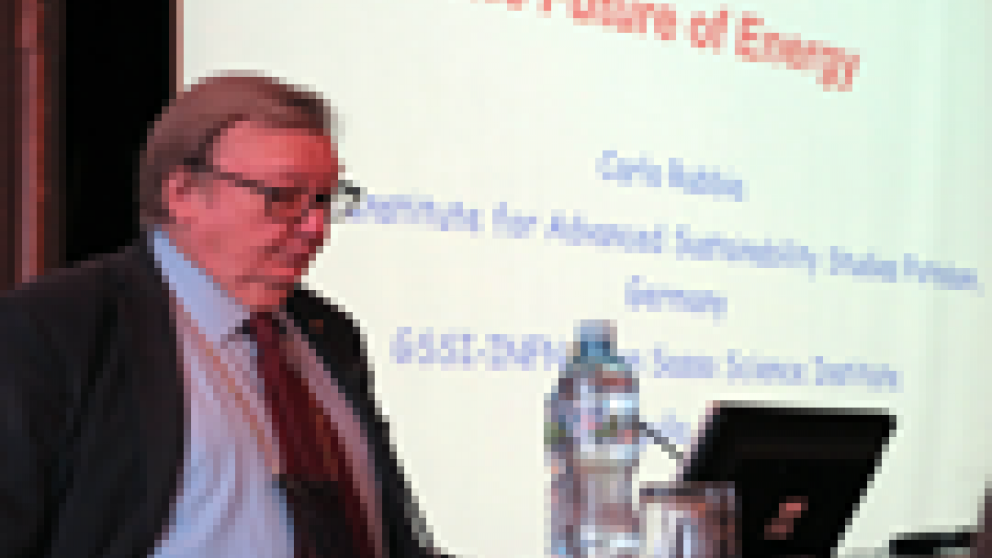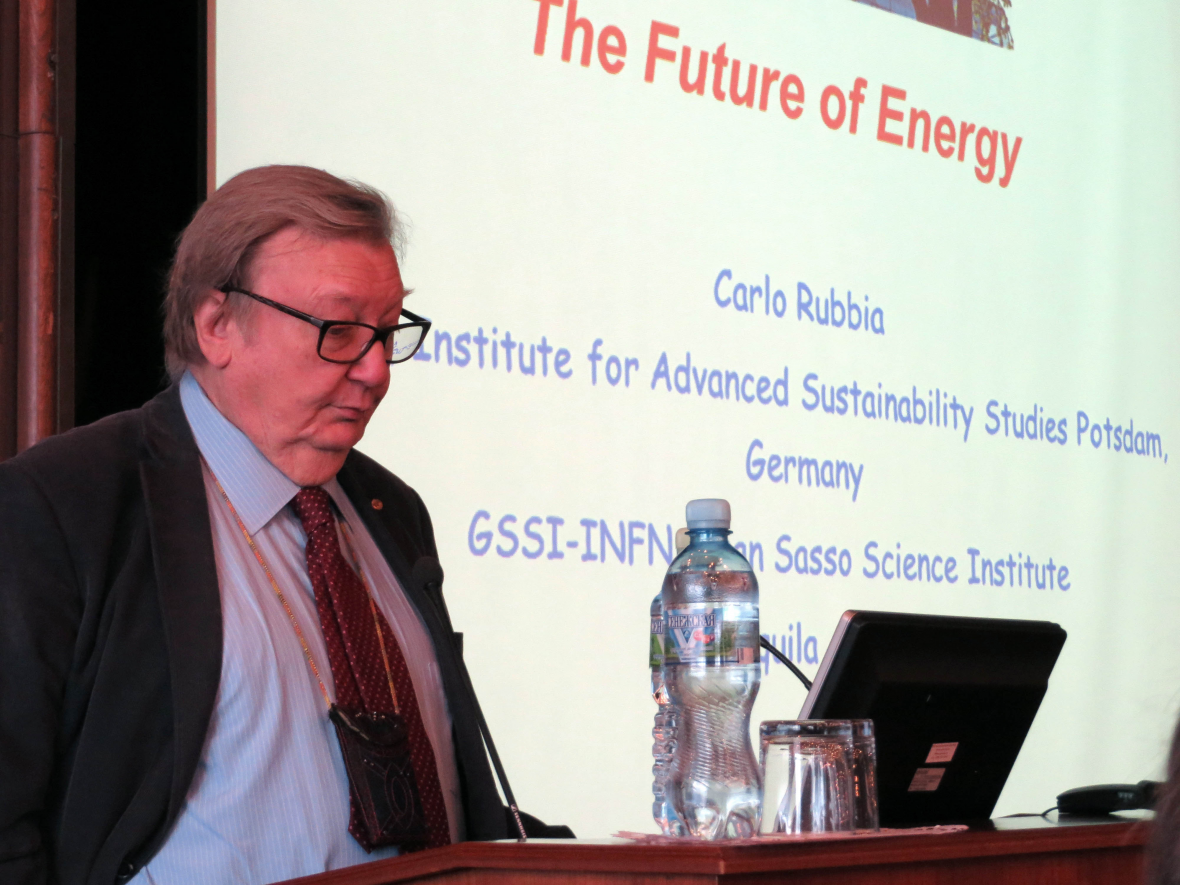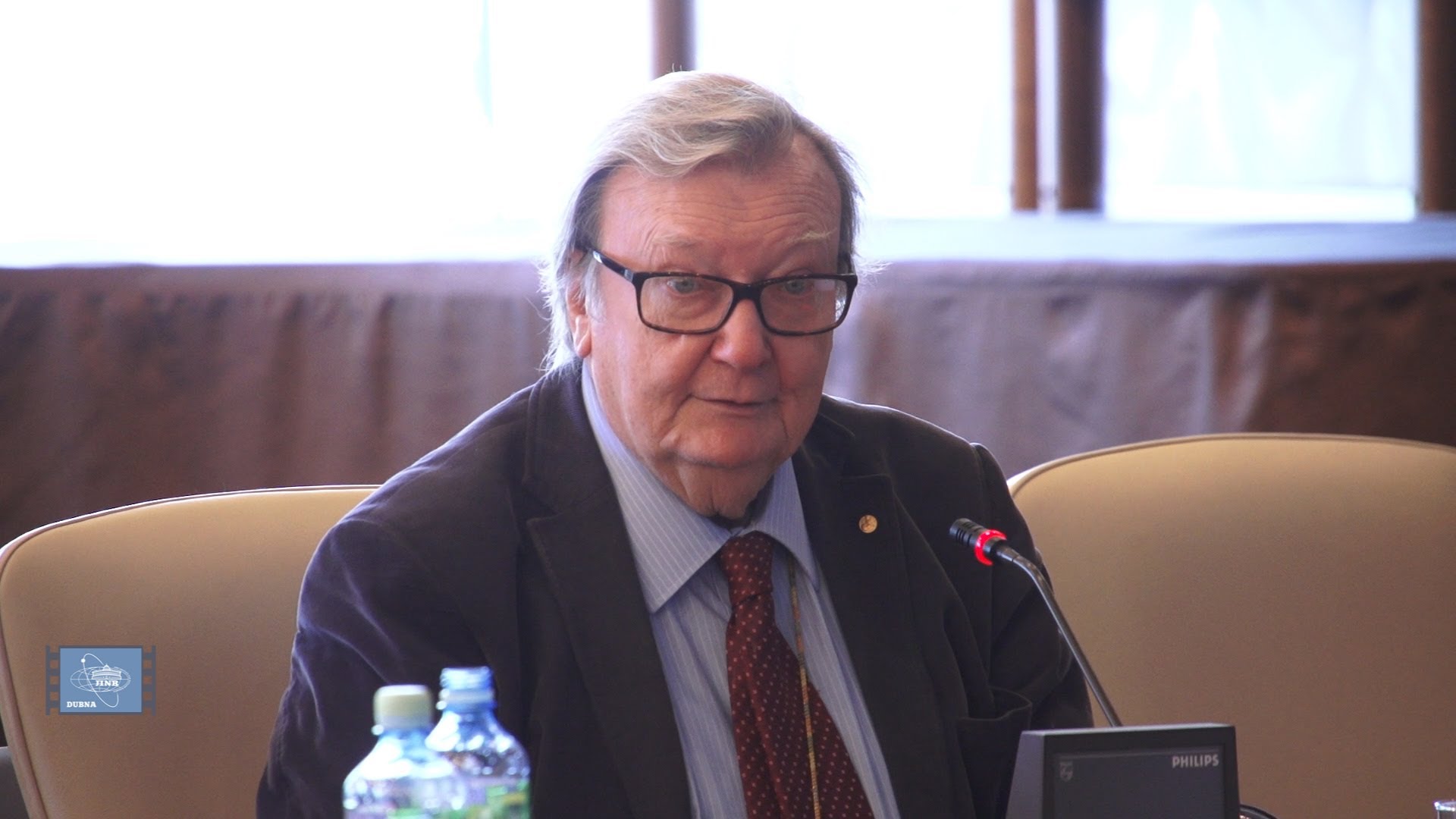Headline:
Renewable power and cleaner fossils: Prof. Rubbia speaks on “the future of energy”

What are realistic pathways to curbing GHG emissions from the energy sector? Nobel Laureate and IASS Scientific Director Prof. Carlo Rubbia presented his views on “The Future of Energy” during a guest lecture at the Joint Institute for Nuclear Research in Dubna, Russia.

Starting from a historical perspective, Prof. Rubbia explained how climate stability has been a necessary premise for the sustained development of human civilization. However, we are presently facing a new phenomenon, the Anthropogenic Era, where for the first time human activities strongly influence and leave irreversible track in any of the Earth’s compartments. Referring in particular to man-made global warming, Carlo Rubbia stressed that “these effects must be urgently curbed to avoid the irreversible effects of a major climatic change”. In this context, he addressed some misconceptions regarding global temperature rise in the last years, which has been slower than initially forecasted: this is caused by masking effects that operate on a short timescale but are not reversing the underlying climate warming trend.
Therefore, mitigating GHG emissions remains a paramount goal, especially regarding the energy sector. Taking into account that fossil fuels will continue to play a role in the energy mix in the coming decades, Carlo Rubbia stated that two complementary strategies should be engaged:
- Development and progressive deployment of renewable energy sources (RES);
- Implementation of more efficient and climate-friendly ways of using fossil fuels.
The future of renewable power as a primary supply of energy will depend on competitiveness, as well as its availability in terms of location and of base load generation. In this respect, one of the IASS research projects is dedicated to improving the cost-efficiency of Concentrated Solar Power (CSP) and investigating the potential of heat storage to minimize day/night effects. Another project investigates long-distance electricity transport through superconducting electric lines as an efficient technological solution for integrating rising shares of renewable power in the electric grid. Regarding fossil fuels, the possibility of exploiting the energy potential of natural gas without CO2 emissions could represent an interesting avenue to decarbonizing the energy supply.
Finally, Prof. Rubbia also discussed other suggested approaches to address some of the aspects of anthropogenic climate change, and particularly climate engineering. On this topic, he underlined the need for additional research and debate on technical feasibility, risks, governance, and ethical considerations. These different aspects of the climate engineering issue are the focus of an IASS inter-disciplinary research group.
Carlo Rubbia «The Future of Energy», JINR, Dubna, 23.04.2014

The Joint Institute for Nuclear Research (JINR) is an international research organization established in 1956 and working on fundamental physics.
